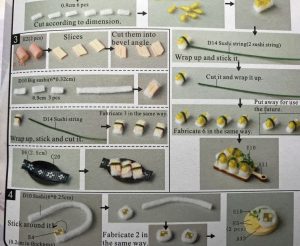Richard was halfway through his final pre-supper circuit through the Cattleman’s restaurant kitchen when his cellphone buzzed with the urgent message from the VFD; all available volunteers report to the firehouse immediately. He had been a volunteer for the past several years – and this was one of his standby days. He wasn’t yet a full-fledged fire-fighting volunteer, due to his erratic attendance at training sessions, but he had scored well enough on the required first aid exams and victim rescue tests to qualify to ride out with Chris in the VFD ambulance. He rushed into the office, to pull his coat out of the closet, and collided with Lew Dubois as he rushed out again.
“You, too?” he gasped, and Lew nodded.
“We’ll take my car, cher. Mr. Charboneau, from housekeeping has been called as well.”
The two men hustled out of the service door, where the old stables used to be, joined in the parking area by a large and normally silent Fred Charboneau, the resident handyman, who had married into the sprawling Gonzalez/Gonzales clan. The rain was pelting down in a manner which reminded Richard keenly of summer in Bickley. Both Lew and Fred hefted duffle bags of turnout gear into the trunk of Lew’s late model Lexus and peeled out of the narrow employee lot on two wheels. It was barely three blocks to the VFD station, already being converged upon by an assortment of civilian vehicles.
“It’s hard to believe that something is on fire in this weather,” Fred Charboneau observed. Richard and Lew laughed, hollowly.
“It is said to be most difficult to make something fool-proof, as fools are most ingenious,” Lew replied. Richard, remembering the flood on the river of some years previous, ventured an explanation.
“Probably an emergency rescue on the river, or a low crossing … some kid messing around on the riverbank and getting swept away.”
“Could be, cher,” Lew found a place to park as close to the station as he could, and they all dashed through the driving rain – which now seemed determined to achieve in four hours what it had taken Noah’s flood forty days and nights.
There wasn’t anything but somber faces in the briefing area, once Milo Grigoriev finished outlining the situation, and setting the search parameters. Every single one of the volunteers in the room knew Joe Vaughn, some of them had even played on the Moths Varsity football team, back in the days when he was the high school football hero. There wasn’t a single one who would mind getting soaked to the skin, or worse, scouting along the two most likely back-country roads – just to make certain that he would be found and returned, safe and sound.
“The weather folks predict that the worst of this storm will pass over the search area in half an hour to forty-five minutes,” Milo Grigoriev concluded, “There’s a hazard in sending out a search while it’s still pissing down to beat the band … but they call it the Golden Hour for a damned good reason – if we find someone injured – badly injured – and get them to medical care within that hour, then there’s a much better chance for survival and recovery. We have to risk it, people. It’s a matter of life and death. You know the plan, then. Go, people. Find Chief Vaughn – and stay safe out there.”
That being said, all but Richard, Chris Mayall, Lew and Steve Gonzales, a full-time FD employee scattered for their personal vehicles. Since the expansion of Venue Properties, International to include a lease on the Cattleman Hotel and a constant stream of day-trippers and holidaymakers, the VFD had found themselves in the way of a second ambulance, the vehicle and contents of necessary gear generously funded by the corporate Good Fairy. There were just the four remaining at the VFD to take any calls for EMS and an ambulance from Tina Gonzalez at the police station dispatch desk. Chris tapped Richard on the shoulder.
“You’re with me, if they call for Number One Magic Bus. Lew, if you don’t mind – you’re with Steve on Number Two. You OK with that, Ricardo – Lew?”
“Fine with me,” Richard replied. This gave him time to change into his VFD gear, now that he had achieved the dignity of a locker of his own at the Fire Station, in which to keep the issue trousers, boots, and official shirt with his name embroidered over the pocket, against the day when the whole crew of volunteers was called out. Then he rejoined his First Aid fellows in the all-purpose room, where the on-duty firefighters whiled away the idle hour in luxuriously overstuffed Barca-loungers, waiting for various disasters to call them to action. A tall coffee urn perked away on a table in the corner, attended by a stack of heavy china mugs, and a dispenser full of sugar packets and little round containers of shelf-stable creamer.
Chris and Steve were watching an old film noir mystery movie from the 1950s, without much interest. A somewhat intrigued Lew was identifying the scene of the outdoor locations, since he had attended college in Los Angeles and had once intended a career in Hollywood set design, before diverted by chance into hospitality management.
“Lake Arrowhead was very popular for shooting scenes of mountain lakes and pine trees,” He was saying as Richard took possession of an empty lounge chair. “Alas, it looks nothing like the Alps of Switzerland at all … but in those days, very few people might know the difference, just by looking at a movie screen. But …”
At that moment, the duty room telephone rang, and Chris picked up with a crisp report;
“Luna City FD, Mayall speaking.”
“Ambulance call, 24 Pin Oak, elderly woman in distress,” reported Tina Gonzalez, from next door in the police station – the extension was on the speakerphone mode. Chris gave a deep sigh.
“Thanks, Tina. Sending Unit 2,” Chris hung up the receiver, and addressed the room at large. “Mrs. Mafilda Potrero – probably having a panic attack again. She always does, when it rains heavy like this. Never got over getting caught in a flooding low-water crossing, ten-fifteen years ago. Steve, you and Lew take it. Ricardo and I’ll wait to hear from the search party.”
“On it, Doc,” Steve shouldered into his rain slicker and hood. He and Lew vanished into the garage part of the station, and the brief wail of the ambulances’ siren could be heard until it faded into the sound of rain drumming on the metal roof. Chris sighed again. “You want some coffee, Ricardo? We may be here for a while.”
“Not unless it’s from the Café,” Richard replied. “I don’t trust anything calling itself coffee, unless it came from my kitchen or one that I supervise. Sounds as if you’ve gone to the dance with the Potrero woman before.”
“Frequent flyer, man,” Chris sauntered over to the coffee and helped himself. “Nice old broad, but still has PTSD from the fright of near drowning … in a foot of water over the old road a couple years back. I can relate. A good few puffs of oxygen, some sternly-worded reassurance, and she apologizes for having been such trouble, and brings out some butter cookies that her sister made, and brags about her grandchildren. All hunky-dory. But one of these days, she will have a heart attack or something for real … aannndd that’s why we send the Magic Bus over to 24 Pin Oak. Just in case. You might as well kick back and relax, Ricardo … by my reckoning, we won’t be called for …” Chris consulted his watch. “At least twenty-five minutes. Sooner, maybe, but only if Joe was exceeding the speed limit, and you know what a freak he was about that kind of thing.”
“How do you figure?” Richard was honestly intrigued. He really hoped that Chris was right. And that the rainstorm had blown through by the time #2 Ambulance returned to the barn. And really – if this call-out took too long, could Chris or Lew drop him off at the Age, and spare him the long trek on his bicycle?
“Joe told Jess that he was about half an hour out,” Chris explained patiently. “So, even in the rain, it will take almost that long for our search crews to reach the approximate area and begin to search. Longer, if they have to be careful in heavy rain. So, relax, Ricardo. Have a cup of awful coffee. Sit back and watch a dumb old movie. Betcha anything that Steve and Lew will be back before we get the call. We might even see the end of the movie.”



Recent Comments